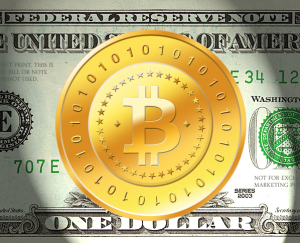Value is Fleeting
 Times are interesting for bitcoin believers. Really, when have they not been interesting? But the current price run has rekindled interest from mainstream media and the continuous trickle of blockchain investment, consortium formation, research, and news articles prop up belief that someday soon bitcoin will achieve mass adoption. It is easy to find sources of optimism within the bitcoin ecosystem, in fact it is difficult to find anyone writing about bitcoin that isn’t optimistic, often implausibly and impossibly optimistic. The headlines generated by bitcoin still contain exuberant hopes of ending war, central banks, and poverty. The optimism overlooks a continual question: Why is bitcoin worth anything?
Times are interesting for bitcoin believers. Really, when have they not been interesting? But the current price run has rekindled interest from mainstream media and the continuous trickle of blockchain investment, consortium formation, research, and news articles prop up belief that someday soon bitcoin will achieve mass adoption. It is easy to find sources of optimism within the bitcoin ecosystem, in fact it is difficult to find anyone writing about bitcoin that isn’t optimistic, often implausibly and impossibly optimistic. The headlines generated by bitcoin still contain exuberant hopes of ending war, central banks, and poverty. The optimism overlooks a continual question: Why is bitcoin worth anything?
When investors in the 1600s, 1700s, and 1800s wanted to speculate they often looked to colonial enterprises. Farms, land grants, shipping fleets, mining rights in far off lands, and a wealth of other opportunities were presented to those with wealth and means. These opportunities were quite often scams, rewarding speculators with nothing but damaged pride and lost family fortunes. When not an outright scam, the speculations were subject to irrational investments which led to dramatic losses, like the famous Tulip Mania. This system of profit generation or capital loss made victims of wealthy speculators who were information poor. How could they properly investigate opportunities in an age before modern communication, or even verify information without a legal system that demanded and defended authentic claims? In the modern investing paradigm, information is readily available for almost every class of investable asset. But not bitcoin.
Bitcoin has limited fundamental value. Scarcity, perhaps. It is pseudonymous, purely digital, and available to anyone with an internet connection in theory. In practice, bitcoin has proven difficult to transact, difficult to store securely, impossible to predict as a store of value, and prone to technical concerns about future development or maintenance. A stock in Apple has value because it entitles the holder to future proceeds, and a strong company will generate proceeds in increasing amounts, hopefully increasing the stock. Derivatives hold less actual value, and can act as a means to offset risk, or to reward risk taking. Each of these opportunities can be researched thoroughly; information about them is freely available, from profit and loss statements to options pricing models. The variables can be adjusted to suit risk appetites, but Apple is under significant pressure to produce accurate financial statements, meaning the underlying information is at least relatively accurate. What about bitcoin?
Trading bitcoin means trusting an exchange, but which exchange to choose? Almost none are regulated, and therefore not audited. Say you decide to trust an exchange and load up your account to begin trading. What about the order book? How do you know the order book is fair and honest? Well, you can’t, because no exchanges perform outside audits by trusted firms. But say you profited from trades, how can you convert bitcoin to a currency? Well, that is difficult as well since some exchanges will “lose” your request or simply not act upon it, and some even claim you can’t redeem your coins for a legal currency but rather their digital tokens, like Tether for instance. If you keep your bitcoins off an exchange and simply hold them, how can you predict their future value? The fundamentals of bitcoin haven’t shifted, and yet the price has moved dramatically. How does this align with traditional supply and demand? It doesn’t. It is indicative of irrational speculation, where the price of a bitcoin is unrelated to any underlying value or value generating characteristic, but is instead defined by what the market is willing to pay on the premise of continued price growth. Buyers are buying bitcoin because they are confident that another buyer exists, or will exist at a higher price.
So bitcoin is worth something only because someone else is willing to buy it. Much like a tulip, bitcoin is somewhat scarce, sought after by exuberant investors who feel certain they won’t be the last one holding the bag, and not useful for much beyond speculation. This begs the question of why is bitcoin still so popular? The simple answer seems to be that the people who are confident they won’t be the last holding the bag are still confident that bitcoin will make them wealthy, and this irrational speculation will last as long as this confidence remains. Tragically, it seems the perpetual scamming, hacking, scheming, and losses will stop only after enough people have been financially marred. Is this what Satoshi wanted?
Image credit – Public domain image by Web-dev-chris (CC0 1.0 Universal)












